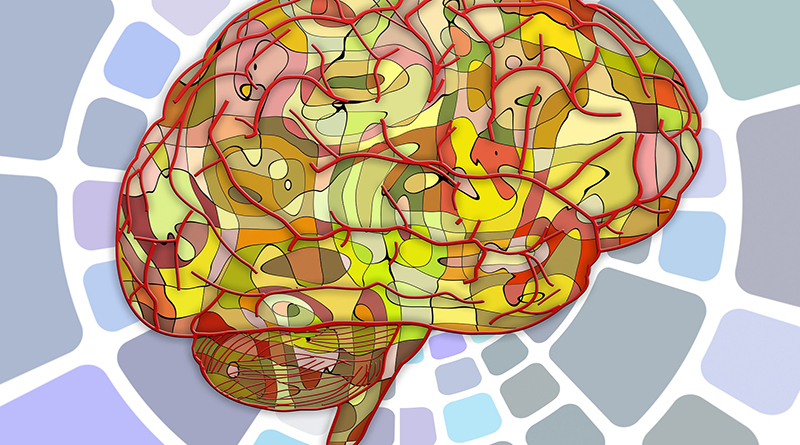
Theory Of Mind: Challenges & Treatments Within Asperger’s & Autism
By Mari Nosal M.Ed., CECE
Imagine that you are living in a foreign country. Everyone speaks a foreign language that you cannot comprehend. You are uncomfortable interacting with them and do not fit in, not only because of a communication barrier, but a cultural one as well. This scenario could be equated with how Aspergians and individuals with autism feel within a group of neurotypicals.
Theory of mind could be perceived in the same fashion. Theory of mind is commonly explained as lacking the capability to step into another person’s shoes to perceive ideas from a perspective that is different than their own. This challenge is common place within autistic individuals. Theory of mind is described as not possessing the capability to understand viewpoints, ideas and emotions from another person’s perspective. In essence, they do not understand that other people have their own plans, thoughts, and points of view. Furthermore, according to official descriptors, it appears that they have difficulty understanding that other people possess different beliefs, attitudes, and emotions.
Theory of mind or mind blindness if you will, has been tested on neurotypicals, individuals with Down Syndrome, individuals with gifted I.Q. scores and low I.Q. scores. Theory of mind tends to be unique to, and common among, individuals with autism and Asperger’s syndrome, who tend to possess black and white thinking as well. Theory of mind should not be confused with a low level of intelligence. As a matter of fact, one criteria of an Asperger’s diagnosis is that the individuals must possess average or higher intelligence.
People on the autism spectrum find it difficult to comprehend information from another individual’s perspective. They can get quite frustrated when not understood from theirs. By not understanding that other people think differently than themselves, many autistic individuals may have problems relating socially, emotionally and communicating with other people. Anticipating the actions of other individuals can be difficult for them.
Theory of mind challenges can cause an individual to appear aloof and preoccupied with themselves. They are in no way aloof or uncaring. They have difficulty comprehending and processing what others are thinking, feeling, and needing. Individuals on the spectrum may appear egocentric. However, this perception is a misnomer and could not be further from the truth. They are baffled by neurotypical behavior.
I have met many individuals with Aspergers who expressed extreme frustration and exasperation, stating: “I just don’t get other people.” Allow me to digress at this point and step back to my original comment regarding being in a foreign culture where everyone speaks a different language.
Perceive this foreign country from a different angle. The individual on the spectrum is the person in a foreign country and neurotypicals are the foreigners. What form of resolution is available? In order to comprehend the foreigners, one could be provided with an electronic translator, As the foreigners speak, one could punch their words into the translator and have them changed into the person’s native language. What would occur for many on the spectrum if we provided the individual on the autism spectrum with a metaphorical translator? Tools to translate what is not understood. Provide a way to understand and acknowledge the thoughts and feelings of others.
Due to mind blindness, social and neurological delays in development, children and adults with Aspergers and autism they are prone to being bullied. Cognitive behavior therapy may be productive in assisting these individuals with developing emotional skills. They could learn how to navigate the social and emotional innuendos of life in a concrete way that is understood by them. If an individual struggles with theory of mind challenges, then using the approach of asking them to put themselves in someone else’s shoes is an impossibility. Can they learn empathy? For sure; but they must be taught on their terms using a learning style that works for them.
Tony Atwood, whom I believe is one of the most highly acclaimed authorities regarding Aspergers and high functioning autism, edited an extremely informative book along with Angela Scarpa and Susan Williams White which I believe is useful for adults on the spectrum as well. CBT for Children and Adolescents with High-Functioning Autism Spectrum Disorders which can be found at this link: www.tonyattwood.com.au or www.tonyattwood.com.au/index.php/publications/by-tony-attwood/1157…
I highly recommend a book that I have read so many times that it is dog eared by Tony Atwood called The Complete Guide to Asperger’s Syndrome by Tony Attwoodhttps://www.amazon.com/dp/1843106698/ref=cm_sw_r_tw_dp_x_NMc4xbZBWRG4V via @amazon
I highly recommend watching Tony Atwood’s video on Aspergers Syndrome and High Functioning autism as well, https://youtu.be/226SCqsU9Qg
Tony Attwood 6/7: adapting cognitive behavioral therapies to Asperger pe… https://youtu.be/226SCqsU9Qg via @YouTube
A brief synopsis of the challenges individuals with Aspergers/autism struggle with;
Aspergers/autism creates havoc in terms of the individual’s ability to process information, strategize, and receive information. Hence, their difficulty with receptive language. (Processing and absorbing information) Reading body language and knowing how to respond when someone is sad, despondent, or distressed is difficult for Aspergians. I recall a gentleman telling me that he wished he new what to say or do when his wife was upset.The man told me that it hurt him greatly because he wanted to say and do the right thing in such situations but did not know how.
Individuals with Aspergers/autism are prone to sensory overload when presented with loud noises, strong odors, office environments where several conversations are going on simultaneously, and parties where background music is playing while people attempt to converse with them. It is not uncommon for Aspergians to have a tertiary anxiety disorder which arise in situations mentioned in the latter paragraph. Aspergers is a neurological condition.
On the surface they tend to be academic prodigies in certain areas of academia. Hence their nickname as children of the little professor. In reference to language skills, many Aspergians speak in a concrete format and upon further review in a reciprocal conversation their sentences may be out of context. Due to receptive processing language deficits, many individuals have difficulty with being given more than several steps through the auditory modality at one time.
It is a misnomer that Aspergians do not warrant speech therapy. On the contrary, speech therapy can assist children in honing expressive language skills i.e. using descriptors, expressing emotions verbally, describing an experience like a trip to the zoo in more than rote terminology. Speech therapy can also assist children with deficits in sequencing. An example of sequencing would be verbally summarizing a story in sequential order.
Aspergians tend to struggle with fine and gross motor skill impairment as well due to neurological impairment. Pincer grip issues can cause issues with difficulty in cutting with scissors, tying shoes, and other fine motor skill tasks. Tasks such as bowling with one hand, midline issues, riding a bike, and climbing trees can prove difficult as well. Hand grip is generally weak and hampers ability in hanging on to jungle gym rungs, etc. Hence they tend to be ostracized by their peers not only for their social deficits, but lack of athletic prowess as well. Thus, they may benefit from physical therapy.
Aspergians may commonly present with A.D.H.D., Non-Verbal processing disorder, and other maladies. They may not appear to stim. Upon further observation however on will notice that many Aspergians run their hands up and down a drinking cup, have feet or legs that are in constant motion, stretch arms bent at elbows while turning wrists, tap tables and feet, and whistle, to name a few. These may be used forms of mild stimming to release anxiety.
Aspergians tend to prefer simple foods void of mixed flavors when young. This is due to sensory overload from heightened taste buds. Simplified, a spaghetti sauce can put their taste buds into sensory overload. It is extremely common for Aspergians to have tactile sensitivities. As children, a scratchy tag or rough texture shirt can drive them to the point of sensory overload, which is resultant in an emotional meltdown. A rough shirt may feel like someone is scratching their back with fingernails.
Due to mind blindness and neurological delays in development that normally place them approximately four years behind their peers, children with Aspergers are prone to being bullied. Cognitive behavior therapy may be productive in assisting children with developing emotional skills.
Please attempt to understand these children/adults . Do not minimize nor assume that they go on to lead independent fulfilling lives. Many of these individuals grow up to be underemployed due to struggles with honing social skills and more. A college degree does not guarantee a decent job and lifestyle when one has neurologically based social, and processing difficulties. Due to popular belief not every Aspergian becomes an engineer or scientist. They are as diverse as you and I. In my son’s case, he is advanced in English but struggles with math and he is an Aspergian.
The divorce rate is extremely high for Aspergians in relation to neurotypical couples. Some go through life having no romantic relationship or friends due to struggling with navigating the social maze. Without society’s assistance and a nationwide education program, these children will not hone their wonderful talents.
Society owes these children AND adults a fighting chance. They cannot always control their behavior. They are dependent on us (society) to equip them with the skills, guidance, and positive support network that they need to thrive as adults. Believe in these individuals and they will believe in themselves.
In closing, I leave you with this food for thought. Not all disabilities are as apparent as a blind individual with a cane, an individual in a wheelchair, etc. Please attempt to look below the surface and understand. Thanks and stay well.About the author: My son had experienced many school issues before he was diagnosed with Aspergers.During this process I realized that a lot of parents were going through the same thing. I wanted to make sure that no other parent would go through that experience.
.
.This article originally was published here. Reprinted with the author’s kind permission.

NOTE FROM MARI- Are you looking for a book that explains how to interact/understand the needs of kids on spectrum? I believe that my book written by me, a special needs parent/educator who has actually walked down the special needs path both as a parent and an educator? It was written from the passion developed from my experiences as a parent wading through the challenges of bringing up kids who are wired differently and my experience in classrooms I am the parent of an adult son with a late DX of Aspergers and earlier diagnosis of ADD/Anxiety. My family has experienced learning disabilities, medical challenges and more. I have certainly walked the walk of a special needs parent and still do. My goal is to light the path for parents who feel as though they are alone and walking down a dark path. There is a LIGHT at the end of the tunnel and my goal is to supply you with some inspiration while educating society in a collaborative manner as well. Check out my book 10 Commandments Of Interacting With Kids On The #Autism Spectrum. Written from the heart with a passion to make a small dent in society with the ultimate goal of increasing tolerance and acceptance of those with different needs. May we all one day, ALL live, love, laugh, play and work together in a society void of judgment and filled with acceptance and understanding for our fellow human beings.
Check out ten of my thirty commandments for autism posted on the national ARC website by AUTISM NOW :Ten Commandments of Parents with Kids on the Autism Spectrum https://shar.es/1wldwF via @sharethis
If you enjoy the sampling of commandments for the autism spectrum. You are most welcome to stop by my Amazon book website to check out my five star reviews and have a free preview of my books.http://lnkd.in/dcXbMjH
Mari Nosal, M.Ed., CECE received her B.A. in psychology and her Masters degree in Educational Foundations from Curry College. She spent years as a school age coordinator, blogger and author, and has over 30 years’ experience within the human services and education fields. She has had special needs articles published in several magazines. Mari is a published author whose special needs Autism and Asperger related books can be found on Amazon.com Barnes and Noble and Createspace. She is certified by the Department of Early Childhood Education as a lead preschool teacher, an infant and toddler teacher, and site coordinator qualified to manage school age programs.
Mari also works with Non Profits, schools, and society at large as well. She conducts public speaking engagements that provide them with the tools and knowledge to help special needs children, (predominantly autism and Asperger (with her specialty being Asperger Syndrome) to become as independent and successful as possible.
Mari has presented autism workshops to staff, management teams, and parent groups. She offers tips on curriculum development and behavior modification within the classroom and through in-services. She is certified by the Department of Early Childhood Education as a lead preschool teacher, an infant and toddler teacher, and site coordinator qualified to manage school age programs.
Inquiries regarding availability for Workshops, Public Speaking Events, motivational speaking and training can be arranged via messaging on LinkedIn.




